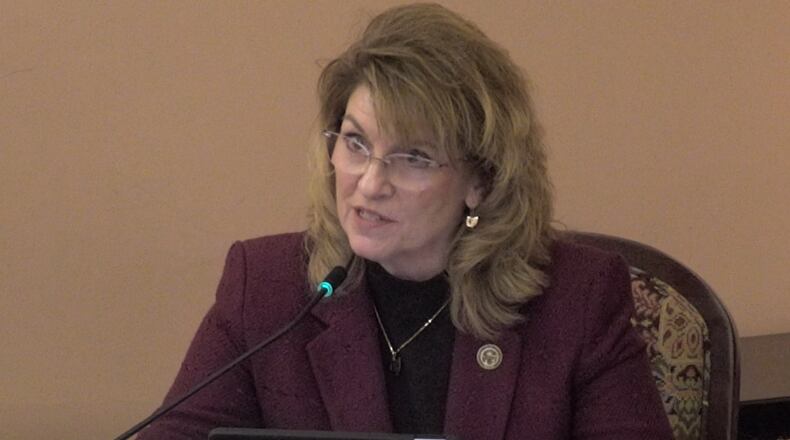The name stems from patients who wanted to try alternative drugs while they were hospitalized during the pandemic, according to family testimony. Those three individuals all later died, but it’s unclear if the deaths were related to any actions on the hospitals’ part, or whether alternative treatment would have helped or hurt.
“House Bill 12 is life-saving legislation that provides the medical freedom needed for prescribers and patients to direct their care and optimize health outcomes,” said State Rep. Jennifer Gross, R-West Chester, who also promoted a similar policy that was unsuccessful under the last General Assembly.
House Bill 12 generally authorizes a prescriber to prescribe any drug, including a drug for off-label use, and generally requires a pharmacist to dispense and a hospital, inpatient facility or pharmacy to allow the dispensing of the drug. There are some exceptions, such as opioids or medications that could terminate a pregnancy.
The bill seeks to protect the ability of patients, health care providers and pharmacies to access and use off-label drugs.
“This issue is very important to the wellbeing of patients in Ohio and the providers who work hard every day to keep them healthy,” said State Rep. D.J. Swearingen, R-Huron.
Local doctors recently provided testimony against this bill, saying they had concerns about patient safety.
“Under House Bill 12, as I understand it, a provider or prescriber who has been uninvolved in the current care of the patient could override the entire interdisciplinary team,” said Dr. Adam Mezoff, chief medical officer at Dayton Children’s Hospital.
Those decisions could go against the system of checks and balances of safe and effective medication use, he said.
“This could include a dentist prescribing cardiac medications for a three-year-old in our Pediatric Intensive Care Unit,” Mezoff said.
Children’s bodies also react differently to medications compared to adult bodies, he said, so prescribing without that expertise could lead to bad drug interactions.
Ohio Advocates for Medical Freedom said they saw a “criminal” handling of COVID-19 treatments.
“In nearly a decade of my volunteer service leading the non-profit, grassroots organization, Ohio Advocates for Medical Freedom, we have received thousands of emails from desperate Ohioans seeking help for various issues,” said Stephanie Stock, president of Ohio Advocates for Medical Freedom.
Many of those emails were from health providers, patients and family members who were having difficulty obtaining various medications, she said.
“While most of these pleas for help came during the pandemic, there were many that were unrelated to COVID in the years prior,” Stock said.
House Bill 12 would protect the free speech of health providers and their right to express independent medical opinions when they differ from that of health and licensing agencies, Gross said.
If doctors or other medical staff in charge of the patient’s care are unwilling to administer a drug to the patient due to a moral, ethical or religious belief or conviction, the prescriber may designate a delegate to administer the drug who meets the hospital or facility’s guidelines and accreditation standards for drug administration, the bill analysis says.
Premier Health’s chief clinical officer, Dr. Keith Bricking, provided testimony with concerns about patient safety, saying a prescriber could require a hospital to administer a drug while the prescriber has not been directly involved in the patient’s care in that hospital.
“A prescriber outside of the acute care setting may not have access to all the organization’s electronic health records, lab results, medical documentation, patient hemodynamics or clinical data needed to holistically care for the patients, which may result in unanticipated harm to the patient,” Bricking said.
House Bill 12 awaits further consideration from the Ohio House Health Committee.
About the Author


